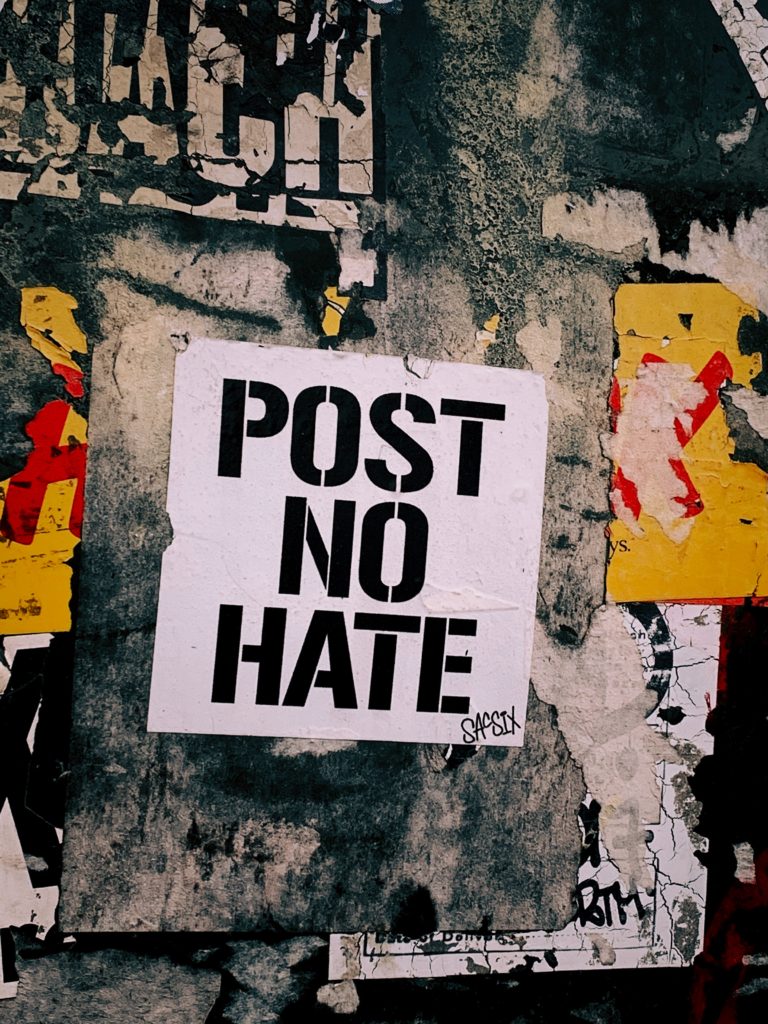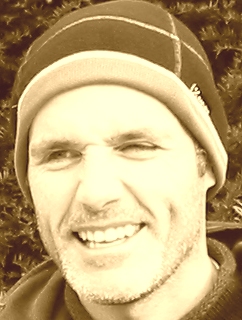The heroes fighting online hate speech
Donald Trump's latest impeachment throws a spotlight on the politics of grievance, the role of social media and the dangers of online hate speech spilling over into real life. Fortunately, the pushback has started.

Thursday 18 February 2021
Bigotry and radicalisation roam free in the bilious stew of misinformation that is social media. Extreme views spread like a contagion. However, some appear immune to the temptations of outrage. Others, call them anti-hate speech heroes, are doing their best to prevent the harm that it can unleash.
The dichotomy of ‘us' and ‘them' has always existed. It framed notions of tribe, territory, class and nationhood. Cartographers drew artificial borders to separate people by place. Sociologists divided people into colour-coded categories of blue versus white, worker versus boss. Marketers concocted their own alphabetical classifications to peddle their stuff.
Of course, in such neatness brews an inevitable reckoning. All containers of ill-formed ideas eventually wear thin. And with enough pressure, a small opening quickly becomes a gaping wound in the social contract. Are we there yet? Maybe.
Here, the United States is a bellwether. Freedoms, rights and justice for all are sewn into its constitutional fabric, so reports of growing numbers of hate crimes make for sobering reading.
The FBI's hate crime statistics show alarming year-on-year increases in incidences starting in 2014. Last year, hate crimes reached the highest level in more than a decade. Hate-motivated murder figures also peaked in 2019 at 51, more than double the previous year.
Of the 8,302 so-called ‘single-bias' hate crimes reported in 2019, 57.6% were race, ethnicity or ancestry related. A further 19.9% were motivated by religious bias, and 16.8% targeted sexual orientation.
In the third quarter of last year alone, YouTube removed nearly 7.9 million flagged videos that violate its community guidelines. Facebook took action against 6.5 million pieces of content in the same period, more than double the previous quarter due to expanding automated flagging services.
Another expression of hate and bias is cyberbullying and this, too, is on the rise. For instance, around one in five children aged 10 to 15 years in England and Wales experienced at least one type of online bullying behaviour in the year ending March 2020, according to the Office of National Statistics (ONS).
“Greater use of smartphones, social media and networking applications means online bullying can follow a child anywhere they go,” says Sophie Sanders from the ONS's Centre for Crime and Justice.
Weaponising speech
But children are not the only bullies in cyberspace. New technology and polarising media are sadly at the mercy of unscrupulous leaders who foment hatred for their own gain. The politics of grievance and outrage has become a powerful weapon. Populists build and nurture their ‘base' through simple messaging that ‘speaks' to the frustration felt by many who feel left behind by modern society.
According to the United Nations, hate speech is an attack on tolerance, inclusion, diversity and the essence of human rights and principles. It undermines social cohesion, erodes shared values, and lays the foundation for violence, radicalisation and instability.
“Public discourse is being weaponised for political gain with incendiary rhetoric that stigmatises and dehumanises minorities, migrants, refugees, women and any so-called ‘other',” writes Antonio Guterres, the United Nations chief in his organisation's Strategy and Action Plan on Hate Speech.
Social media and other forms of networked communication are singled out as multipliers of bigotry and spreaders of ‘fake news' of the sort culminating in the storming of the Capitol in Washington ahead of Joe Biden's inauguration as US president. The platforms responded by blocking former President Trump who stands accused of inciting his supporters.
Experts have observed a surge in hate speech in Europe following the refugee crisis in 2015, and there is evidence that it may have spilled over into the real world. Arson attacks on refugee centres in Germany and terror attacks in France, Belgium, Sweden, Spain, and England may well be a physical manifestation of some online anger and hatred.
Researchers at the University of Warwick claim in a much-debated study that German towns with a high level of social media engagement tended to have higher rates of anti-refugee incidents. The study, reported by Euronews, points out that there are many factors at play here and that the platforms are not directly causing the violence, but have become “fertile ground for spreading hateful ideas which can motivate real-life actions”.
Another study, this one published in the British Journal of Criminology, is less unequivocal about the link: “National governments now recognise online hate speech as a pernicious social problem,” say the authors. “In the wake of political votes and terror attacks, hate incidents online and offline are known to peak in tandem.”
Social networks maintain that they are hosts (not producers or owners), so the onus to remove toxic content is not the same as legal liability. As private entities, they naturally have their own terms of use, so authorities tread carefully so as not to infringe on freedom as they work to protect other fundamental rights, freedoms and public safety in general.
It is complex stuff, so authorities are working to make it as transparent as possible. A Code of Conduct ironed out by the EU with major platforms, governments and civil society in 2016 is considered a good start. Platforms now have 24 hours to remove identified hate speech. Terror-related content, as covered by the EU's provisions on illegal content, must be taken down within an hour, once identified. This new agreement, awaiting formal adoption, wants to “ensure that online platforms play a more active role in detecting terrorist content online and that such content is removed”, to make the internet safer and help prevent future attacks.
Freedom of speech means you're entitled to speak your mind, but it also means others are entitled to question that. This is perhaps where the complexity really comes in. The relationship between traditional media and content is like darts; targeted and tallied in reverse. This also makes it easier for authorities to monitor and intervene where needed. But TV and print media have lost much of their former power to influence mass opinion, especially among younger generations. Here, ‘social' media holds sway, and it is a game-changer in the leagues of whack-a-mole. User-generated content pops up, platforms have no editorial control, and hate speech hunters struggle to keep up.
Diehard freedom-of-speech advocates will no doubt see any attempt, direct or indirect, to block content or individual access to content as interference. So when a platform blocks one leader for incendiary posts while allowing others to carry on with impunity, they conclude that it is a partisan act, not something done in the public interest. Political polarisation, it seems, has its own brand of cognitive dissonance.
Polarised in all directions
Fighting fire with fire is a well-worn adage for tough battles. But quelling radicals with radical action has a dangerous ring to it. Patience and level-headed counter-argument, underpinned by healthy democratic mores, such as a free press and fair elections, is offered as the steady option. Yet even there, the recent US elections and, before that, recriminations and turmoil surrounding Brexit, put this ‘steady as she goes' course of action under serious scrutiny.
It is not helped by the gloves-off reporting of major news services on different ends of the political spectrum who appear to have shed any pretence of impartiality, arguably pushing more people to the media fringes where facts are optional.
Tiny algorithms built into the way information is parcelled out and recommended to readers and viewers, chat rooms and dedicated platforms for the ephemera of wacky conspiracy theories, and growing numbers of especially younger people who rely on social media for the ‘news' are all adding to information tunnel vision. The resulting polarisation – political, social, economic – is inevitable. But is it irreversible?
If the United Nations, EU and other international organisations focused on human rights, security and freedom get their way, the answer would be no. The UN's 2018 Action Plan seeks to address hate speech while preserving freedom of opinion and expression. It is by no means an easy balance to maintain. Tackling the sort of radical ideas and hatred online is everyone's responsibility – government, society, industry and individuals. “All are responsible, all must act,” notes the Action Plan, “to recognise, reject and stand up to hate speech.”
And sometimes it does pay to fight fire with fire. Grassroots activists like ‘I am here' (#jagarhar), which started in Sweden and has taken off in Germany, are banding together to take on the online trolls and support victims. They draft and disseminate factual responses to misinformation and hate speech which is often spread through organised attacks. Numbering in the tens of thousands, these truthsayers run the gauntlet of becoming the subject of hateful trolling themselves. But they are undeterred.
Meanwhile, groups like the EU-backed Radicalisation Awareness Network (RAN) share first-hand experiences and approaches to preventing and countering violent extremism in all its forms. It is part of the bloc's ‘Preventing Radicalisation to Terrorism and Violent Extremism' actions to protect society and the European Agenda on Security. Members cover the whole spectrum, from social workers and victims of hate crime and terror to reformed radicals and their families.
These activists and actions show that communities, civil society and concerned individuals all have a key role in the battle against hate. The pushback has definitely started. And not before time.


